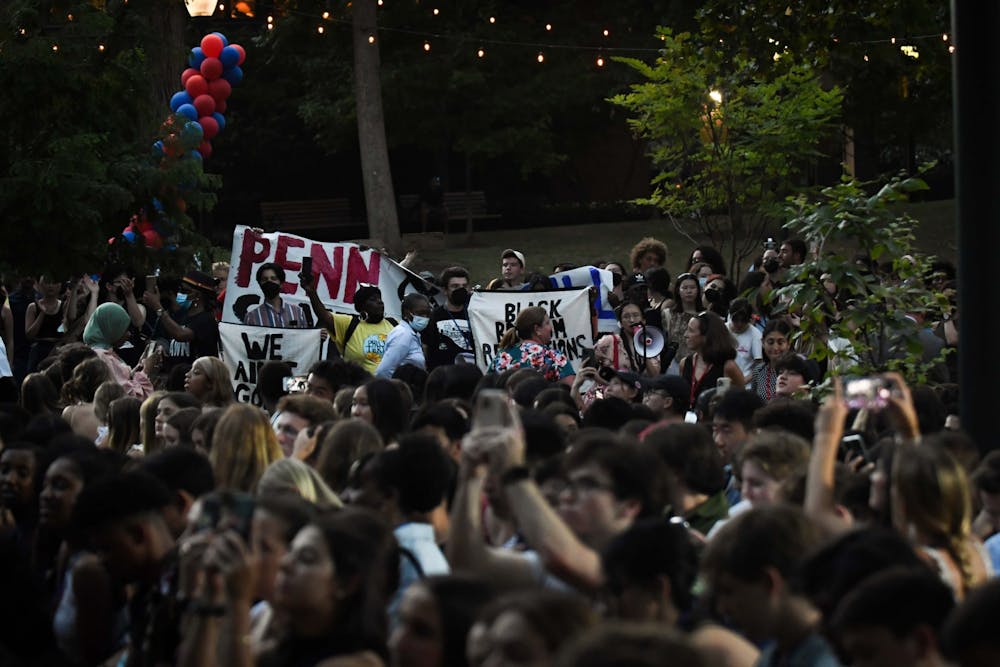
Seventy-three Penn faculty members signed a letter in opposition to the University's disciplinary action in response to students' alleged involvement in disrupting Convocation, protesting the eviction of University City Townhomes residents.
The letter, from “deeply concerned” faculty members, was sent to University administrators on Friday, detailing their support of student protest. The faculty members opposed efforts by Penn administrators to discipline two students accused of violating the University’s Guidelines on Open Expression and Code of Student Conduct, due to their alleged involvement in the demonstration that interrupted Convocation.
The students involved had told The Daily Pennsylvanian on Sept. 21 that the University is targeting them to stifle protest against the sale of the UC Townhomes, an affordable housing complex located at 39th and Market streets.
"This is a shameful moment in institutional memory," Krystal Strong, a former faculty member at the Graduate School of Education said. “[Penn] can’t say as an institution there is a value of civic engagement, and then sanction students for expressing that in a way [the University doesn’t] like.”
The contents of the letter describe the faculty's concerns over Penn’s violations of its Guidelines on Open Expression, which delineate the University’s policy on students' freedom to protest and debate various views.
Faculty members — such as Akira Drake Rodriguez, an assistant professor of City and Regional Planning at the Weitzman School of Design — believe the University follows its policy on open expression selectively and targets Penn students who are prominent activists.
"It doesn’t feel like protections are uniformly applied across the University,” Rodriguez said. "That is concerning. This is a pattern [we] want to nip in the bud."
Another signee, Germanic Languages and Literatures Professor Simon Richter, has been a strong supporter of, and often an active participant in, direct protest for prominent issues on campus.
“I thought it was really important to make the administration aware that faculty knew these students, cared about these students, supported their protest, and that we were watching,” he said.
On the other hand, some faculty members recognized colleagues' concern for fear of University retaliation and backlash including negative influences on possible tenure, a permanent academic appointment. Strong said that there is fear among faculty of the possibility of being punished for speaking against administration.
However, many faculty members consider themselves to have an essential role in the conversation between students and the University. They highlighted student organizers as a source of motivation to take action on social issues adjacent to campus, including the sale of the UC Townhomes. Richter said he wanted to support the students and praised them for their "courage."
“We make ourselves available to these discussions to show that we support them in ways beyond just writing a letter,” Rodriguez said.
The letter concludes with a plea to the University and the Center for Community Standards and Accountability to drop the charges against the students. It also includes a call to the Penn community to “turn our attention to the issues they call upon us to address.” Some faculty said they see this as an opportunity for the University to strengthen its stance on freedom of speech and begin addressing its contributions to the displacement of Philadelphia residents in the West Philadelphia area.
“Penn has the opportunity to walk the walk instead of talking the talk about its commitments to Philadelphia communities,” Strong said.
The Daily Pennsylvanian is an independent, student-run newspaper. Please consider making a donation to support the coverage that shapes the University. Your generosity ensures a future of strong journalism at Penn.
Donate



